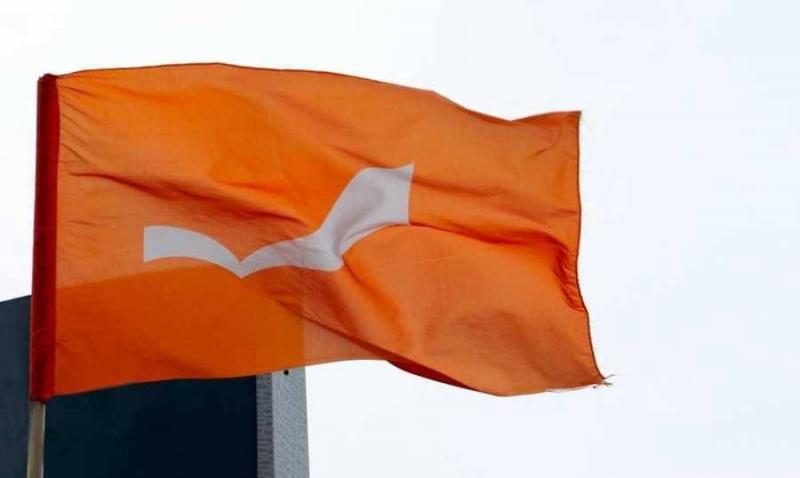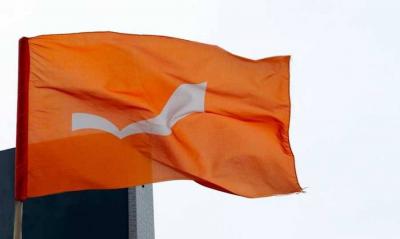Lebanese MP Simon Abou Rami submitted his resignation from the Free Patriotic Movement and the Strong Lebanon bloc, both led by MP Gibran Bassil, on Wednesday. This resignation was a preemptive move against a prior decision to expel him from the movement along with several of his colleagues. The resignation came five days after Bassil's decision to expel MP Alan Aoun from the bloc, based on a recommendation from the Council of Elders, headed by former President Michel Aoun. This followed hours after a political council meeting within the movement, which warned in a brief statement of measures that would affect anyone deviating from party commitment.
Notably, Abou Rami announced his resignation in a lengthy statement, reflecting on his journey within the movement since its establishment. He stated that since September 1988, he committed to the principles of General Michel Aoun, who voiced a "no" against all conspirators against the homeland, remaining supportive for 36 years. He highlighted his entry into politics under the banner of "change and reform," alongside the vision of building a strong Lebanon, but expressed concern over a gradual deviation from those foundational principles, noting the transition from a rich ideological pluralism to a system of presidential governance and singularity.
Abou Rami pointed out that these adjustments undermined the core idea of establishing an exemplary democratic movement, leading to a series of popular setbacks in successive parliamentary elections. After the tsunami of 2005, the movement reached its lowest percentage of votes in the 2022 elections.
He emphasized that every leader derives legitimacy from their history and present contributions over four decades, which has now rendered him a target for exclusion due to not meeting the criteria for the inheritance project sought by the new movement. He described his exit from the organization as a sad personal day but promised to remain loyal to the national principles instilled in him through his long affiliation with this political entity that has produced an exceptional phenomenon in modern Lebanese history.
Abou Rami's departure is neither the first nor will it be the last, as he was preceded by dozens who once carried General Aoun's slogans but eventually parted ways. Former Deputy Prime Minister Major General Issam Abu Jamra, a founding member of the Free Patriotic Movement, expressed regret over the current state of the movement due to the policies pursued by its leaders over the past two decades. In a statement to Asharq Al-Awsat, he noted that since leaving, he had foreseen the movement reaching its current fragmented state, exacerbated by policies that have stripped it of the values upon which it was founded and for which many have struggled and sacrificed.
Expectations abound for several more resignations following Abou Rami’s, as informed sources predict that this initial step may lead to further withdrawals from the bloc, impacting its parliamentary weight. Sources confirmed to Asharq Al-Awsat that these anticipated resignations would have significant negative repercussions on the unity of the bloc and its party structure, noting that after the dismissal of (Deputy Speaker of Parliament) Elias Bou Saab and Alan Aoun, along with the exit of MP Mohammed Yahya and the resignation of Abou Rami, the movement has lost four members, bringing the total down to 16 MPs.
Moreover, sources do not rule out that other MPs might take this step, including (Chairman of the Finance and Budget Committee) MP Ibrahim Kanaan and others, positioning the Lebanese Forces' (Strong Republic) bloc as the largest and most cohesive Christian bloc in the parliament.
The implications of Abou Rami's resignation are expected to affect the orange movement's base. The sources explained that the exit of MPs who were dismissed or faced forced resignation would create challenges for the movement, which will struggle to nominate replacements and secure their victory in upcoming elections. They noted that Gibran Bassil’s mistake was clashing with MPs who possess strong grassroots support and significant representation in their electoral districts, such as Elias Bou Saab and Ibrahim Kanaan in Metn, Simon Abou Rami in Jbeil, Alan Aoun in Baabda, former MP Mario Aoun in Baabda, and former MP Ziad Aswad in Jezzine, according to Asharq Al-Awsat.




